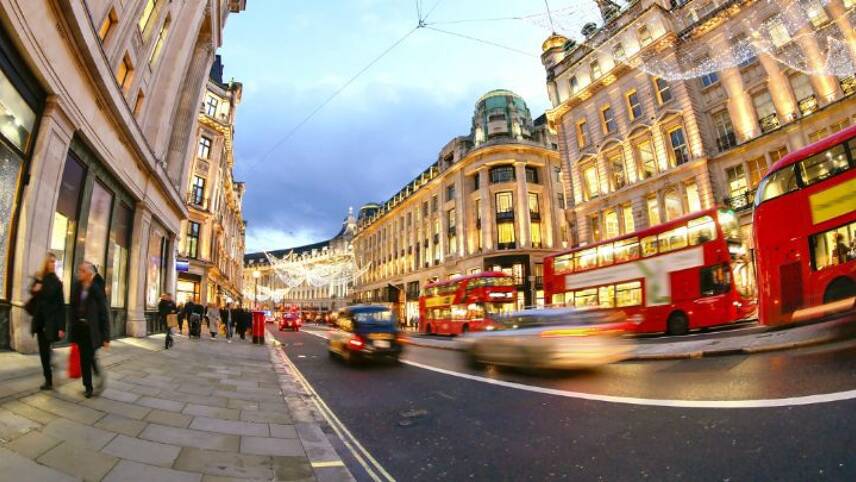Register for free and continue reading
Join our growing army of changemakers and get unlimited access to our premium content

The Mayor's preferred pathway includes expanding the ULEZ to all of Greater London within 24 months
The plans are outlined in a new report, published this week. The city sought the help of strategic consultancy Element Energy to draw up four possible ways of delivering net-zero operational emissions in a manner consistent with – or more ambitious than – the Paris Agreement’s net-zero pathway.
Detailed in the report is a scenario in which all major policy and regulatory barriers are removed (the ‘No Constraints’ scenario); alongside scenarios in which the Government and private sector throw increased weight behind either electrification or low-carbon hydrogen as a means to decarbonise hard-to-abate sectors.
The ‘No Constraints’ scenario would see London reducing direct emissions by 86% between 1990 and 2030. The pure-play hydrogen and electrification scenarios deliver reductions, within this timeframe, of 70% and 73% respectively.
Another intermediate pathway, called the ‘Accelerated Green’ option, is also put forward, with a mix of hydrogen and electrification-based solutions and consideration of current policy constraints. It would, the report states, deliver a 78% reduction in London’s direct emissions between 1990 and 2030 – more than the national commitment of 68% under the Sixth Carbon Budget.
Responding to the report, Khan has selected the ‘Accelerated Green’ pathway as his preferred approach, stating that it “balances ambition with deliverability”. There is an acknowledgement that achieving this scenario will require behaviour change at scale, but that it will not result in “wide-scale scrappage” of old technologies including cars and heating systems this decade.
As expected, priority areas for decarbonisation include transport and buildings.
On transport, the ‘Accelerated Green’ pathway includes a 27% reduction in vehicles travelled using petrol and diesel cars by 2030, against 2019 levels. Transport for London (TfL) is notably already working towards net-zero operations this decade and London’s Transport Strategy, published in 2021, targets 80% of trips within London being made using public transport or active travel by 2041. The new scenario would need that target to be brought forward, ideally to 2031.
The pathway is also dependent on things progressing to plan with the national plans to ban new petrol and diesel car sales, and with an expansion of London’s Ultra-Low Emissions Zone (ULEZ) to cover all of Greater London by 2024.
On buildings, the pathway would require sweeping improvements to energy efficiency. It entails a 40% reduction in the total heat demand of London’s buildings, recommending insulation initiatives that reach two million homes and 250,000 commercial and public buildings.
Buildings – domestic and commercial – would also need to be supported to get off of gas heating. The pathway entails the capital hosting district heating networks that serve almost half a million buildings, as well as 2.2 million heat pumps, by the end of the decade. This transition is more rapid than the national approach outlined in the Heat and Buildings Strategy.
Commenting on the report to the Financial Times (FT), Khan said: “We have too often seen measures to tackle air pollution and the climate emergency delayed around the world because it’s viewed as being too hard or politically inconvenient, but I’m not willing to put off action we have the ability to implement here in London.”
For London Climate Action week 2021, edie put together a feature detailing the capital’s progress to date on reducing emissions and improving resilience. Click here to read that article in full.
Sarah George


Please login or Register to leave a comment.